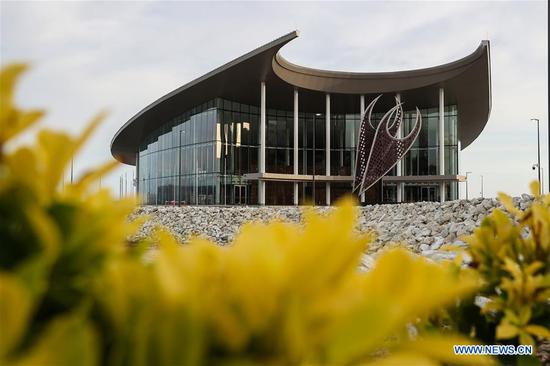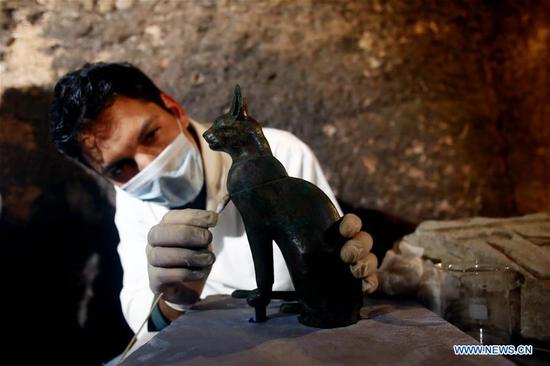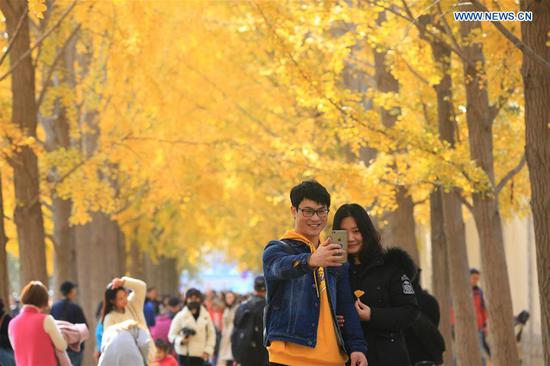On November 9, 2018, China's first public opinion poll on the therapeutic use of gene editing was released today, with a condensed English version entitled "Report on Chinese Public Attitudes on Gene Editing". The report was conducted by the Key Laboratory of Public Opinion in Big Data Analysis and Simulation of Guangdong Province at Sun Yat-Sen University. The majority of the Chinese general public currently accepts the therapeutic use of gene editing to treat or prevent genetic disease in adults and children — and rejects non-therapeutic uses, such as increasing IQs, as applications that should be illegal.
Zhi'an Zhang, project director, professor and dean of the School of Communication and Design at Sun Yat-Sen University, said, "This research is an initial comparative investigation of the Chinese general public and people living with HIV/AIDS (PLWHA) on gene editing, which provides an important basis for the rational and healthy development of gene editing technology in China."?
The research team conducted a survey from June to September in 2018 of 4,196 Chinese ordinary people and 575 PLWHA to gauge the public's familiarity and opinions about the use and ethical considerations for gene editing in humans.
The survey reveals that the Chinese general public broadly supports the research, development and application of gene editing technology. Most Chinese people believe that gene editing therapeutics should be legalized, especially in regard to treating familial cardiovascular diseases, extending life spans, correcting cancer-causing mutations, reducing the genetic risk of dementia and thalassemia, and guarding against HIV infection. Respondents said that decisions on allowable applications of gene editing should be for the government to determine. Furthermore, the majority of the general public demands for increasing their knowledge level about gene editing.
Liang Chen, principal investigator and associate professor of the School of Communication and Design at Sun Yat-sen University, said, "The survey revealed that more than 60 percent of Chinese people support the research, development and application of gene editing technology. Moreover, they have a high willingness to use of gene in disease prevention and treatment. This suggests that the research of gene editing in China not only has a promising potential, but also is responding to the public's needs."
Compared with the general public, more PLWHA believe that the therapeutic use of gene editing should be legalized, especially in regard to HIV prevention. Their higher desire to use gene editing suggests that exposure to a life-altering disease may increase receptivity to or need for novel medical advances.
Due to respondents' high level of trust in the government's oversight of gene editing therapeutics, the public may look to relevant agencies to provide ethical guidance and legal regulation to define the cornerstones for clinical applications of gene editing.?
A general low level of knowledge about gene editing among respondents of this survey, and among respondents to recent American surveys, indicates a need for the scientific community to engage journalists about the capabilities, limitations, risks and potential uses of gene editing in the clinical setting. Given PLWHA's receptivity to using gene editing therapies, they are also a critical audience to educate about potential risks and limitations, especially through private social media or online communities used by PLWHA.?
Jin Zhang, founder of New Hope Fertility Center in New York City, said, "This survey article is illuminating as it sheds light on the opinions on gene editing among the people of China. It is apparent from the data collected that the masses support gene editing for medical usage, but do not support use to change social phenotypes."
Benjamin Hurlbut, associate professor at the School of Life Sciences at Arizona State University, said, "It is very likely that if survey respondents were to learn more — about how genome editing could be used, how and by whom it would be deployed in society, how it would be controlled, who would be responsible for rectifying unanticipated harms and unintended consequences, and the extent to which these questions remain unresolved — their answers would evolve. Thus, exploring the questions the survey asks, not as a one-shot exercise of fact finding about public attitudes but through a process of dialogue, can contribute to richer ways of thinking amongst both the public and the scientists, social scientists, ethicists and policymakers engaged with this area of research."
Bai Hua, head of the Bai Hua Lin China People Living With HIV/AIDS Alliance, said, "Given the impact HIV has on one's life, PLWHA will take a more positive attitude towards new technologies compared with the general population. It's important to see these technologies mature alongside dialogues with the patient communities they could affect."
Jiankui He, associate professor in the Department of Biology at the Southern University of Science and Technology, said, "As a scientist researching the safety and feasibility of gene editing for therapeutic use, I fully agree that editing the human genome should only be used for preventing and treating serious diseases, not for human enhancement. Millions of children are born each year with inherited genetic diseases. If it could be possible to prevent those children and families from suffering, we should look into developing medical procedures responsibly in order to help those families."


















































